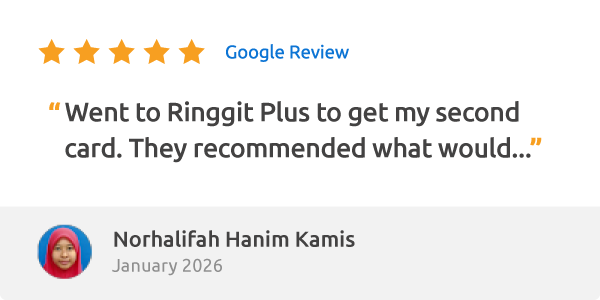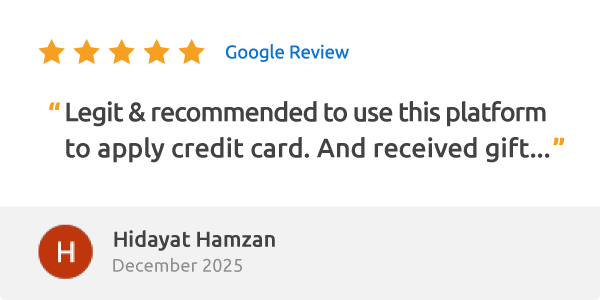Understanding your Debt Service Ratio (DSR) is crucial for loan approval in Malaysia. This guide explains what DSR means, how Malaysian banks calculate it, and proven strategies to improve your DSR for better loan approval chances.
What Is Debt Service Ratio (DSR) in Malaysia?
Debt Service Ratio (DSR) is a financial metric used by Malaysian banks to check your ability to repay loans. It measures the percentage of your monthly income that goes towards debt payments.
DSR calculation includes these monthly commitments:
- Personal loans
- Car loans (hire purchase)
- Home loans (mortgage)
- Credit card minimum payments
- PTPTN education loans
- ASB financing
Why DSR Matters for Loan Applications
The lower your DSR, the higher your chances of loan approval. Most Malaysian banks require your DSR to be below 60% for loan eligibility. A lower DSR indicates you have sufficient surplus income to handle additional debt obligations.
Example: If your net monthly income is RM5,000 and total debt commitments are RM2,000, your DSR is 40% - well within the acceptable range for most banks.
How Malaysian Banks Calculate DSR
DSR Formula
DSR = (Total Monthly Debt Commitments ÷ Net Monthly Income) × 100
What Counts as Monthly Income for DSR?
- Basic salary
- Fixed allowances
- Regular overtime pay
- Consistent commission (bank-dependent)
- Rental income (some banks)
- Side business income (with proof)
DSR Calculation Example
| Monthly Debt Commitments | Amount (RM) |
| Car loan instalment | 700 |
| Home loan payment | 1,000 |
| Personal loan | 500 |
| Credit card minimum | 200 |
| Total Monthly Commitments | 2,400 |
Net Monthly Income: RM6,000
DSR Calculation: (RM2,400 ÷ RM6,000) × 100 = 40%
What Is a Good DSR in Malaysia?
DSR Categories for Malaysian Banks
| DSR Range | Category | Loan Approval Likelihood |
| Below 30% | Excellent | Very High |
| 30% - 40% | Good | High |
| 41% - 60% | Acceptable | Moderate |
| Above 60% | High Risk | Low |
Ideally, you want to keep your DSR in the 30-40% range. However, some banks may approve loans for borrowers with DSR up to 60%, depending on other factors like:
- High income levels
- Strong credit score
- Stable employment history
- Existing banking relationship
Why High DSR Causes Loan Rejection in Malaysia
Ever wondered why your loan application was denied even with a steady income? The most common culprit is a high Debt Service Ratio (DSR).
Here’s why Malaysian banks see a high DSR as a major red flag:
1. It Signals Financial Strain
A high DSR tells banks you might be stretched too thin financially. When a large portion of your income is already committed to loan payments (like car loans, credit cards, or other debts), they worry about your ability to comfortably take on another one without falling behind.
2. Your Cash Flow is Too Tight
Banks need to see that you have enough money left over after paying your monthly commitments. A high DSR indicates you have little surplus cash for daily living, savings, or unexpected emergencies. Lenders prefer borrowers who have a healthy financial buffer.
3. It’s a Bigger Risk for Unsecured Loans
For personal loans, which don't require any collateral (like property or a car), banks are extra cautious. If a high-DSR applicant defaults, the bank has no assets to recover its losses from. This makes them much stricter with their approval criteria.
Ways to Lower Your DSR for Better Loan Approval
A high Debt Service Ratio (DSR) is a common hurdle for loan applicants in Malaysia. Fortunately, you can take control. Here are eight powerful strategies to lower your DSR and boost your chances of getting approved.
1. Pay Down Existing Debt
Focus on high-interest debt first such as credit cards and personal loans. Even reducing debt by RM500 monthly can significantly improve your DSR.
2. Increase Your Monthly Income
A higher income lowers your DSR percentage. Ensure you declare all verifiable income sources to the bank:
- Negotiate salary increases with current employer
- Take on consistent side income (freelancing, part-time work)
- Monetise skills through online platforms
- Rental income from property investments
3. Debt Consolidation Strategy
Combine multiple high-interest debts (like credit cards) into a single personal loan. This can lead to:
- Lower monthly payments
- Simplified debt management
- Potentially lower interest rates
- Improved DSR calculation
4. Extend Loan Tenure (Use Cautiously)
Longer repayment periods reduce monthly instalments, improving DSR. However, consider the trade-off of higher total interest costs.
This is a last-resort option. Choosing a longer loan tenure reduces your monthly payment, which instantly improves your DSR. However, be aware that this means you will pay significantly more in total interest over the life of the loan.
5. Avoid Multiple Loan Applications
Limit loan applications to prevent credit score damage and additional DSR burden from multiple approvals.
Applying for multiple loans at once can temporarily hurt your credit score. More importantly, if you get approved for more than one, those new commitments will immediately raise your DSR, jeopardising your main loan application.
6. Don't Become a Guarantor
Being a loan guarantor adds to your DSR even if you're not making payments. Banks include guaranteed amounts in DSR calculations.
7. Update Your Credit Profile
Accuracy is key. Before applying, ensure your CCRIS records reflect current information:
- Recent salary increases
- Paid-off loans
- Additional income sources
- Closed credit cards
8. Strategic Credit Card Management
Your credit card commitments are a key part of your DSR.
- Always pay more than the minimum amount
- Close unused credit cards
- Avoid cash advances
- Keep credit utilisation below 30%
How to Check Your DSR Online in Malaysia
1. CTOS Credit Report
- Cost: Free basic report
- Features: Comprehensive debt overview, estimated DSR calculation
- Best for: Complete financial health assessment
2. eCCRIS by Bank Negara Malaysia
- Cost: Free
- Features: Official credit information from BNM
- Best for: Accurate debt verification before loan applications
3. Experian Personal Credit Report
- Cost: Paid detailed reports
- Features: International credit scoring, detailed analysis
- Best for: Comprehensive credit monitoring
How Your DSR Affects Different Loan Applications in Malaysia
Your Debt Service Ratio (DSR) is a critical factor for any loan, but Malaysian banks don't apply a single, rigid rule. The DSR limit they accept often depends on the type of loan you're applying for, based on the level of risk involved. Here’s how it breaks down:
Personal Loans
- Typical DSR requirement: Below 60%
Personal loans receive the highest level of scrutiny because they are unsecured, meaning there is no collateral for the bank to recover if you default. Their decision rests almost entirely on your income and ability to repay. This is why thorough income verification is non-negotiable.
Home Loans/Mortgages
- Typical DSR requirement: Usually below 70%
Banks have more breathing room with home loans because the property itself serves as collateral. This significantly reduces the bank's risk. Because of the lower risk and larger loan amounts, they are often willing to accept a higher DSR. However, expect a much longer and more detailed approval process involving property valuations and legal checks.
Car Loans (Hire Purchase)
- Typical DSR requirement: Below 60-70%
Car loans take a balanced approach. Like a home loan, the vehicle acts as security, which gives the bank a level of protection. This allows for a slightly more flexible DSR cap than a personal loan. The approval process is often streamlined through car dealerships and is typically faster than a mortgage.
Key Takeaways for Malaysian Borrowers
Managing your DSR effectively is essential for financial health and loan approval success in Malaysia. Key strategies include:
- Maintain DSR below 60% for optimal loan approval chances
- Regularly monitor your credit reports through CTOS and eCCRIS
- Focus on debt reduction before applying for new loans
- Increase income streams to improve your debt-service-ratio
- Avoid being a guarantor unless absolutely necessary
By understanding and actively managing your DSR, you'll be better positioned for loan approvals and long-term financial stability in Malaysia's banking system.
Ultimately, your DSR is more than just a number for a loan application, it shows how healthy your finances are. By taking control of it, you are building a stronger foundation for your financial future.
Frequently Asked Questions About DSR in Malaysia
How accurate are online DSR calculators?
Online calculators provide estimates, but banks use proprietary formulas that may include additional factors not captured in basic calculators.
Do all Malaysian banks use the same DSR calculation?
No, each bank has unique DSR formulas and requirements. This explains why you might get approved by one bank but rejected by another for the same loan amount.
Can I get a loan with DSR above 60%?
Possible but challenging. Some banks make exceptions for high-income earners or customers with excellent credit history and strong banking relationships.
How often should I check my DSR?
Review your DSR quarterly or before any major financial decisions. This helps you stay within healthy debt levels and prepare for loan applications.
Does PTPTN affect my DSR?
Yes, PTPTN repayments are included in DSR calculations by most Malaysian banks, even if payments are deferred.
Can spouse's income be included in DSR calculation?
Yes, for joint loan applications. Both incomes and debts are combined to calculate household DSR.












